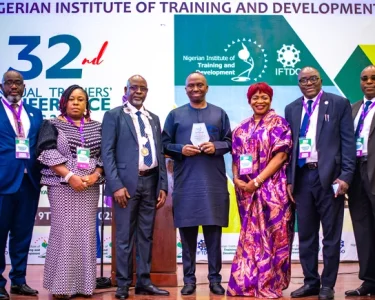US-based e-commerce giant Amazon has officially gone live with its much-anticipated online marketplace in South Africa, with the launch of Amazon.co.za.
Amazon is expected to shake-up South Africa’s e-commerce space and take on established local players such as Naspers-owned Takealot, which comprises Takealot.com, Mr D Food and Superbalist.
It is also expected to rival online marketplaces Bob Shop, Massmart-owned Makro Marketplace, Zando and Bidorbuy, among others.
Market watchers believe the arrival of the US giant will force local e-commerce players to consider where their value proposition lies, and how to maintain uniqueness and authenticity around their business, so their offering continues to resonate with consumers.
In a statement today, the e-tailer says it is available by either downloading the Amazon Shopping App or visiting www.amazon.co.za on desktop or mobile browsers.
Customers can now discover and shop from a selection of local and international brands across 20 different product categories, with same-day and next-day deliveries.
“We are excited to launch Amazon.co.za, along with thousands of independent sellers in South Africa,” says RobertKoen, MD of Amazon Sub-Saharan Africa.
“We provide customers with great value, broad selection – including international and local products – and a convenient delivery experience. From today, customers can count on Amazon.co.za for a stress-free shopping experience, fast and reliable delivery, access to 3 000 pickup points, 24/7 customer support and easy returns. Customers will also enjoy free delivery on their first order.”
According to the company, Amazon.co.za features a wide range of products across categories, such as consumer electronics, sporting equipment, toys, home and small kitchen appliances, including international brands such as Apple, Sony, HP, LEGO, Chicco, Maybelline, Pampers, Neutrogena and Johnson’s.
The store will also include local brands from independent South African sellers, including Amanda-Jayne, King Kong Leather, Masodi and Tiger Lily.
Amazon has also partnered with goGOGOgo, a South African non-profit organisation, offering customers the opportunity to package eligible products in handmade gift bags.
Based in Johannesburg with projects across South Africa, goGOGOgo is dedicated to building the capacity, skills and knowledge of grandmothers, locally known as GOGOs, says Amazon.
The gift bags, made from recycled plastic and handsewn, directly support local businesses and income-generation opportunities for GOGOs raising children, it notes. With over four million children in SA raised by grandmothers, this project helps contribute to improved life outcomes for these families.
“We are grateful for this wonderful opportunity to partner with Amazon to expand our reach and make a meaningful impact in promoting positive life opportunities and health outcomes for GOGOs and the children they are raising, often in difficult conditions,” says goGOGOgo founder Jane Simmonds.
“Through this partnership, Amazon recognises the importance of our cause to support these extraordinary women in the vital role they play within their families and their communities around South Africa.”
According to the online retailer, more than 60% of the items sold in Amazon’s stores globally are from independent sellers – most of which are small and medium businesses.
As part of its commitment to connect customers with businesses throughout the country, Amazon.co.za offers independent sellers an opportunity to rapidly launch, grow and scale, while leveraging the innovative capabilities, valuable tools and educational content provided by Amazon, says the firm.
The company quotes minister of small business development of South Africa, Stella Ndabeni-Abrahams, as saying: “The heartbeat of our small business enterprises measures the health of our country’s economy. If they are pumping, the nation is growing. We welcome companies that provide opportunities for local sellers and entrepreneurs to grow their businesses.
“We are counting on Amazon to provide such opportunities to our small enterprises, and look forward to working together to unlock these opportunities. This will create jobs and contribute to government’s objective of repairing the legacy of poverty and inequality. This is the heartbeat we want to hear.”
South African businesses can sell their products to customers across the country through Amazon. The company says it offers independent sellers access to easy onboarding tools, payment processing solutions and promotional features to help them get discovered by customers, as well as reports and analytics to improve sales.
“Building a strong relationship with South African brands and businesses – small or large – is incredibly important to us. We want Amazon.co.za to be the place where they can reach millions of customers,” adds Koen.
“Today is only the start ofAmazon.co.za. We will continue to improve and enhance our shopping experience to serve customers and sellers across South Africa.”
According to Nathalie Schooling, customer experience specialist and CEO of nlightencx, the introduction of Amazon competition in the local e-commerce market is exactly the customer experience (CX) shake-up the sector has been needing.
“At the start of the COVID-19 pandemic, our local e-tailers were having their moment. All of a sudden, there was this re-energised focus on convenience, customer experience and innovation. And things were working, for a while. But ask any South African if they are consistently happy with the service they get these days from our local e-commerce players, and you’re likely to get mixed reviews,” says Schooling.
“You just need to pay a visit to their social media pages to see the streams of customer complaints. Unfortunately, complacency tends to creep in when things are good, and companies lose sight of the customer.
“The arrival of Amazon is going to drive local players to step up their CX game so that they can retain the loyalty of consumers and reinforce their position in the market. And if you ask me, it’s about time.”
ITWeb




